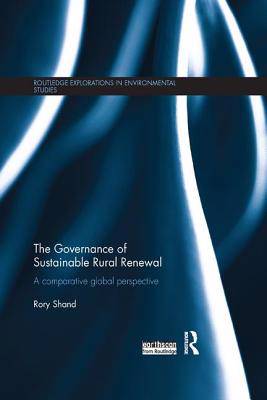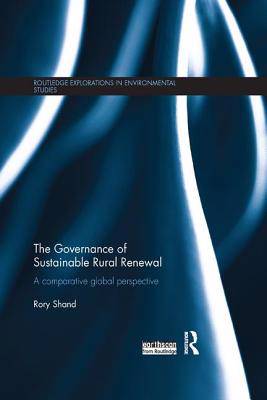
- Afhalen na 1 uur in een winkel met voorraad
- Gratis thuislevering in België vanaf € 30
- Ruim aanbod met 7 miljoen producten
- Afhalen na 1 uur in een winkel met voorraad
- Gratis thuislevering in België vanaf € 30
- Ruim aanbod met 7 miljoen producten
Omschrijving
This book examines examples of rural regeneration projects through the public administration lens, analysing how governance arrangements in rural settings work. In particular, the author focusses on the role of communities, business and tiers of governance (local, regional, national, and supra national) in terms of delivery and funding.
By drawing on a range of case studies from the UK, US, Australia and South Africa, the book identifies best practice in governance, applicable to both academic conceptual debates and to practitioners engaged in real world governance of regeneration. While there are substantial political science, sociology and geography debates within the existing academic literature around food security, fair trade, urban-rural divides and supply chains, little has been written on the way in which governance in comparative global case study settings operates in achieving or underpinning rural renewal programmes.
Through the inclusion of dedicated sections in each chapter summarising both the links between academic debate and practice, this book will be of great interest to researchers and policy-makers in the field of rural development, and environmental politics and governance in general.
Specificaties
Betrokkenen
- Auteur(s):
- Uitgeverij:
Inhoud
- Aantal bladzijden:
- 164
- Taal:
- Engels
- Reeks:
Eigenschappen
- Productcode (EAN):
- 9780815364528
- Verschijningsdatum:
- 3/01/2018
- Uitvoering:
- Paperback
- Formaat:
- Trade paperback (VS)
- Afmetingen:
- 156 mm x 233 mm
- Gewicht:
- 248 g

Alleen bij Standaard Boekhandel
Beoordelingen
We publiceren alleen reviews die voldoen aan de voorwaarden voor reviews. Bekijk onze voorwaarden voor reviews.











